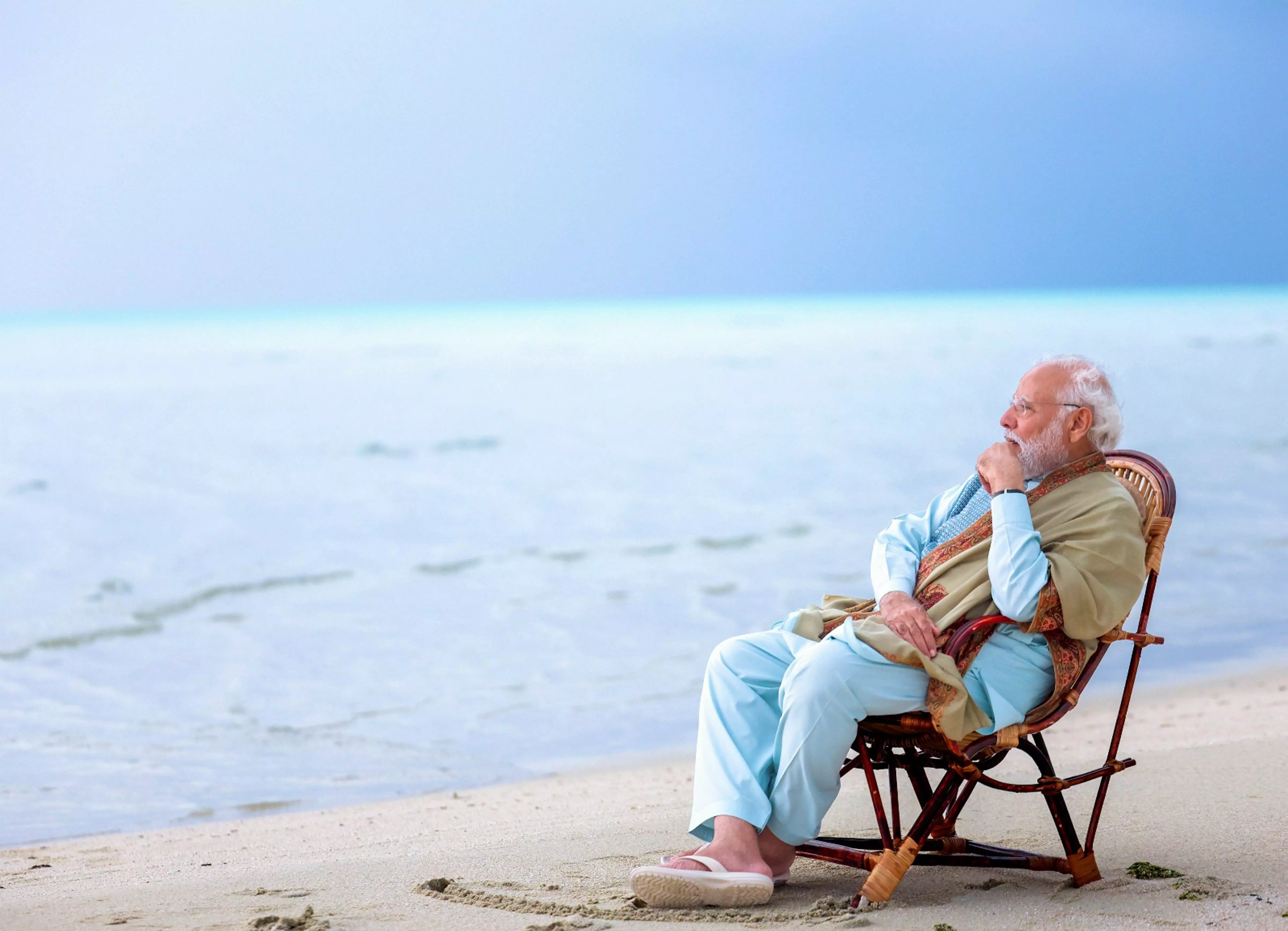
Lakshadweep islanders fine with Modi’s tourism pitch, but want concerns sorted first
The strained relationship between the island administration and people, particularly since Praful Patel came to power in 2020, has alienated many from New Delhi

Residents of Lakshadweep will be happy if it turns into a Maldives-like tourist paradise as many Indians seem to want, but they have plenty of concerns that they want addressed first.
Prime Minister Narendra Modi’s short visit to Lakshadweep and the diplomatic tension between India and Maldives, triggered by comments against Modi by now-suspended Maldivian ministers, have brought the spotlight on the archipelago in the Laccadive Sea off the coast of Kerala.
More tourist footfalls likely?
Many residents anticipate that the developments will draw increased attention to Lakshadweep, potentially boosting tourism to the islands. Lakshadweep, whose main attractions are the beaches and coral reefs, used to get 30,000-40,000 tourists before the COVID pandemic. According to local officials, the number has fallen to 10,000 in recent years. The island is connected by air and sea, mainly with Kochi in Kerala.
However, many Lakshadweep islanders are not overly enthusiastic vis-à-vis tourism.
Locals not too optimistic
The MP from the island, Mohammed Faizal, welcomes effort to promote tourism but feels the Centre’s approach will mainly involve property and land of the islanders.
“One thing is sure. Lakshadweep is going to be a new destination that is still to be explored. Modi said the people of Lakshadweep always wanted to have a tourism perspective. But the government should have a clear policy for tourism because that would generate employment opportunities,” he said.
“We don’t oppose tourism projects. But it should not come at the cost of our lives and livelihoods. In Lakshadweep, nearly all of us possess land with transaction rights, lacking only the occupancy certificate,” added Rasheed Mannel, a social activist based in Kalpeni Islands.
According to him, in 2019, the Union government had taken all the measures to grant ownership deeds to individuals holding Pandaram land (distinct government land surveyed and demarcated separately).
“They had even enacted amendments to the regulations and officially announced these changes in the gazette. The rules for the amendment were established, and the administrator only needed to sign them. It was then that the former administrator, Dineshwar Sharma, passed away.”
Residents wary of land grab
Praful Patel, who succeeded him, cancelled these moves.
“It looks like he is trying to take away our land, saying it is for tourism. We just want to be paid fairly for it. Once that is done, we are all in for tourism because it can create jobs for our young people,” said Rasheed.
The strained relationship between the island administration and the general population, particularly since the arrival of Patel in December 2020, has largely alienated a significant portion of the population from New Delhi.
The tensions persist, even after the visit of the prime minister, highlighting the complexities and challenges in the relationship between the local community and the administration.
Controversies galore
With Patel at the helm, four contentious decisions became the focal point of controversy in the island.
The Lakshadweep Panchayat Regulations, 2022 (LPR 2022), which was later invalidated by the High Court of Kerala, stood out as a primary concern.
The other three significant measures included the prevention of anti-social activities act (PASA or Goonda Act), a stringent law akin to the UAPA, granting the administrator the authority to detain an individual for up to one year without trial.
Another decision involved the implementation of an animal preservation regulation, commonly known as the anti-cow slaughter law, prohibiting the slaughter of bovine animals in the archipelago.
The fourth one, which has far-reaching implications, the Lakshadweep Development Authority Regulation, conferred arbitrary powers upon the administrator, allowing for the acquisition of land.
These decisions have ignited controversy and raised apprehensions about their impact on the rights and freedoms of the residents in the region and have been challenged in the court.
A move to withdraw non-vegetarian menu from the school mid-day meals got through judicial scrutiny as the Supreme Court said it cannot interfere in administrative decisions.
“Even after Narendra Modi’s visit, there appears to be little change in the prevailing situation. Despite the prime minister’s promotional efforts for tourism, the controversial reforms initiated by Patel persist,” Faizal told The Federal.
“Issues such as the evacuation of patients and the conversion of mid-day meals to a menu-without-meat have created significant concerns,” he added.
‘No democracy, land-related issues’
“The abolition of panchayats over the last two years has led to a lack of democratic rule, with no village or district panchayat elections taking place. Consequently, societal governance has been superseded,” added Faizal.
Land-related problems, including instances of land grabbing without compensation, remain unresolved, he pointed out.
One islander who wanted to remain anonymous said some issues were very serious.
“The persisting land issue will obviously lead to the administration taking over the uninhabited ‘pandaram’ land which are presently used by people without ownership, and handing over to private parties from the mainland for tourism purposes,” he told The Federal.
“We think this was the sole purpose of the entire administrative reforms,” he added.

